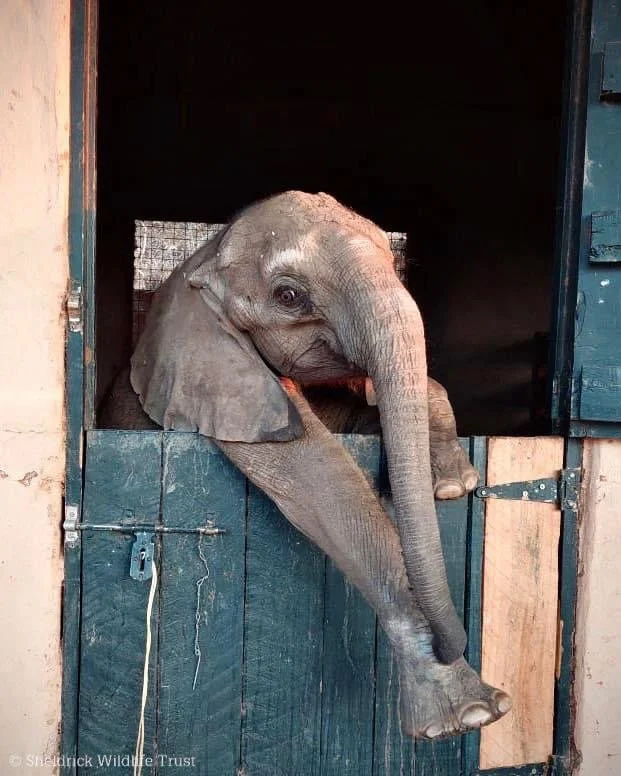Shujaa Means Hero in Swahili. I Adopted an Elephant
Shujaa- Photo credit Sheldrick Trust
Two years ago, I became the adopted mother of an African elephant, and my boy’s name is Shujaa, which means Hero in Swahili.
Now that I have your attention, I'd like to share with you my passion for elephants. Aside from living and breathing my passion for domestic animals, I also have a soft spot for wild creatures, particularly whales, wild horses, and elephants.
As a child, I fantasized about living in Africa, surrounded by wildlife. While my life took a slightly different turn with some detours to Asia before I moved to the US, my fascination with elephants, the wisdom keepers of the earth, never ceased.
I have always been captivated by elephants' intelligence, deep sense of family, and profound emotional intelligence. They remember the earth’s secrets, a testament to their wisdom and resilience.
The matriarchs lead their herds through any terrain to ensure their survival. It is also well-documented that elephants grieve their dead and that an entire group of females, including aunties, protects newborn calves, not just the mother.
Wild elephants, among the oldest land mammals alive, face numerous challenges in the wild, from habitat loss due to human encroachment to the devastating effects of poaching.
For many years, I have actively supported African and Asian conservation groups that protect wildlife and endangered species and help local communities.
That’s where I learned about Shujaa, a rescued elephant orphan who found refuge with Sheldrick Wildlife Trust in Kenya. The organization rescues and rehabilitates youngsters like Shujaa and conducts vital research, community outreach, and anti-poaching efforts.
I felt the spell of love in action and adopted him. Boy, I am hooked. I did not know a long-distance love affair would make my heart deliriously happy.
I receive updates about Shujaa and the other elephant orphans and their journey to re-wilding each month. Reintroducing them to the wild can take many years and requires careful monitoring.
I can tell you that I am giddy with excitement when I read Shujaa’s keepers’ diaries, learn about his shenanigans, and watch how he’s growing, romping around, and making new friends.
Here is Shujaa’s rescue story:
Raising an orphaned elephant is not a few years’ work but a lifetime commitment. An orphan may remain in our care for upwards of a decade until they feel ready to reclaim their place in the wild
I also receive updates on preserving the “lungs” of Kenya. In Kenya, montane forests are essential to the country’s health, providing clean air, regulating water flow, and supporting biodiversity. Several organizations are actively involved in their preservation, recognizing the importance of these ecosystems for both wildlife and local communities. I hope to visit Kenya soon to see these efforts firsthand — and to meet my boy in person, of course!
Here in Africa, Kenya is known for its commitment to conservation. The country is home to 27 national parks and 34 national reserves — yet collectively, these comprise just 8 percent of Kenya’s land. However, increased initiatives to secure wilderness outside national parks and reserves also exist. Conservancies and other creative conservation projects have been formed to protect essential landscapes further. These dedicated spaces for wildlife are vitally important — and, in an age of relentless development, their existence must never be taken for granted.
When I adopted Shujaa in 2022, he was in the Nairobi orphan nursery.
This year, in August, he graduated from the Nairobi nursery and graduated to the Ithumba Reintegration Unit in Tsavo East National Park.
It is beautiful to have this connection with Africa, to contribute in a small but meaningful way, and to feel Shujaa’s heart beating with mine.


